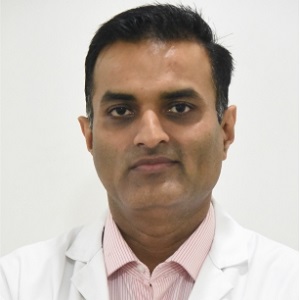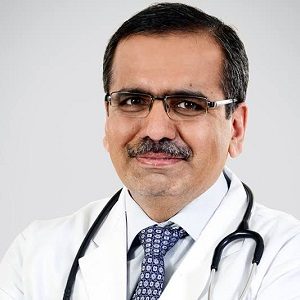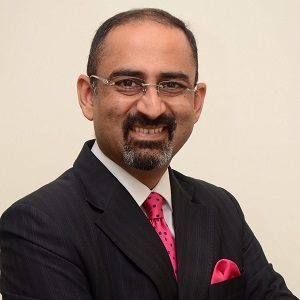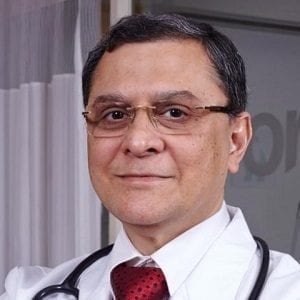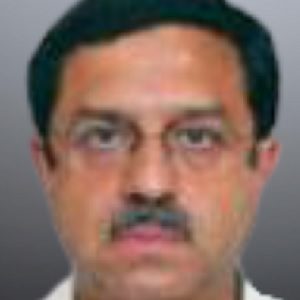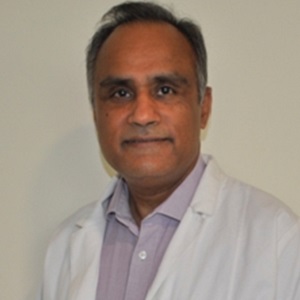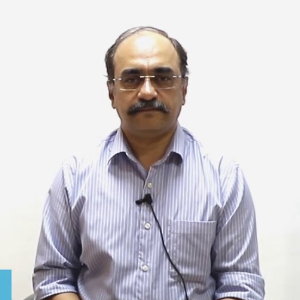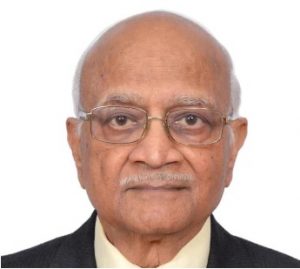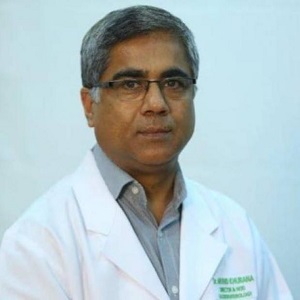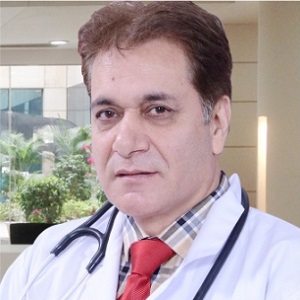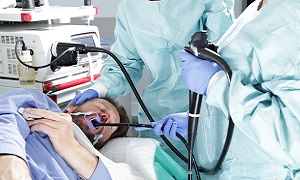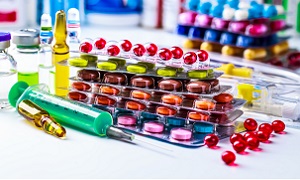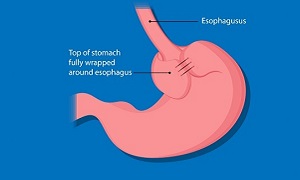Best Doctors in India for GERD Treatment
- Gastroenterologist, Gurugram, India
- Over 15 years’ experience
- Artemis Hospital, Gurgaon
Profile Highlights:
- Dr. Pawan Rawal is a highly skilled Gastroenterologist with over 12 years of experience in clinical Gastroenterology and Hepatology. He is currently associated with Artemis Hospital, Gurugram as the Head of Gastroenterology Department, Unit I.
- Dr. Rawal is proficient in handling various luminal, hepatic, pancreatic, biliary, and systemic diseases. His extensive training includes both noninvasive and invasive procedures. He performs a variety of diagnostic and therapeutic endoscopic procedures, such as adult and pediatric upper GI endoscopies, colonoscopies, ERCPs, capsule endoscopies, and pushes and double balloon enteroscopies.
- Top Medical Gastroenterologist and Hepatologist | Apollo Hospital, New Delhi, India
- 30+ Years Experience
- Indraprastha Apollo Hospital, New Delhi
Profile Highlights:
- Dr. Yogesh Batra is one of the best medical gastroenterologists in New Delhi, India. He has been a practicing gastroenterologist for more than three decades. Currently, Dr. Batra is serving as a Senior Consultant in the Department of Gastroenterology and Hepatology at Indraprastha Apollo Hospitals, New Delhi.
- His expertise spans various aspects of gastroenterology, including liver diseases, endoscopy, inflammatory bowel disease, pancreatic disorders, and gastrointestinal malignancies.
- Additionally, Dr. Batra is skilled in performing a wide range of GI procedures such as upper and lower GI endoscopies, diagnostic and therapeutic ERCPs (both biliary and pancreatic), endoscopic ultrasound (EUS), and EUS-guided procedures like FNA and biliary drainage. He is also experienced in upper and lower GI manometry and motility studies.
- Top Pediatric Gastroenterologist | Apollo Hospital, New Delhi, India
- 26+ Years Experience
- Indraprastha Apollo Hospital, New Delhi
Profile Highlights:
- Dr. Anupam Sibal is a renowned Pediatric Gastroenterologist and Hepatologist in India with a distinguished career spanning 25+ years. He is currently a Senior Consultant Gastroenterologist and Hepatologist at Indraprastha Apollo Hospital in Delhi, where he has made significant contributions to the field.
- In 1997, Dr. Sibal played a pivotal role in establishing the pediatric gastroenterology and hepatology division at Apollo Hospital, the first of its kind in India’s private sector. The following year, he helped launch the country’s first successful pediatric liver transplant program at Apollo Hospitals. This program has become the busiest solid organ transplant program globally since 2012.
- Dr. Sibal’s leadership extended to a broader role as the Group Medical Director of Apollo Hospitals at the age of 37 in 2005, overseeing 12 hospitals with 3,400 beds and a revenue of USD 139 million.
- Gastroenterologist, Gurugram, India
- 42 years’ experience
- Fortis Memorial Research Institute
Profile Highlights:
- Dr. (Prof) Gourdas Choudhuri is the distinguished Chairman of the Department of Gastroenterology and Hepatobiliary Sciences at Fortis Memorial Research Institute, Gurugram.
- With a remarkable career spanning over 42 years, Dr. Choudhuri is a leading figure in gastroenterology, renowned for his contributions as a medical educator, researcher, and philanthropist.
- His academic excellence include, prestigious degrees like MD, DM, FACG, FICP, FAMS, FRCPI.
- Top Medical Gastroenterologist, Hepatologist | Apollo Hospital, New Delhi, India
- 35+ Years Experience
- Indraprastha Apollo Hospital, New Delhi
Profile Highlights:
- Dr. Sanjay Sikka is a general physician who specializes in medical gastroenterology. He is a gastroenterologist and hepatologist with over 32 years of experience in liver disease, therapeutic endoscopy, and gastrointestinal consultations.
- Dr. Sikka is practicing as a senior consultant in the Gastroenterology department at Indraprastha Apollo Hospitals, New Delhi.
- Being Professor at the GSUM Medical College in Kanpur, Dr. Sanjay Sikka was also involved in scholarly activity. He has several papers that appeared in numerous national and international periodicals.
- Top Gastroenterologist | Max Hospital, Saket, New Delhi, India
- 33+ Years Experience
- Max Super Specialty Hospital, Saket, New Delhi
Profile Highlights:
- With over 33 years of distinguished experience in Gastroenterology, Hepatology, and Endoscopy, Dr. Vivek Raj stands as a leading expert in his field.
- Currently serving as the Principal Director and Head of Department at Max Healthcare, he has dedicated the last 20 years to advancing clinical practices in Gastroenterology.
- Dr. Raj’s specialty interests encompass a range of advanced gastroenterological procedures and conditions, including Therapeutic ERCP, Endoscopic Ultrasound, Hepatology (with a focus on Hepatitis B and C), Gastrointestinal Motility, Capsule Endoscopy, Endoscopic Surgery, and Inflammatory Bowel Disease.
- Top Gastroenterologist and Hepatologist | Max Hospital, Saket, New Delhi, India
- 24+ Years Experience
- Max Super Specialty Hospital, Saket, New Delhi
Profile Highlights:
- Dr. Abhishek Deo is one of the finest Gastroenterologists and Hepatologists in India with an outstanding experience of over 24 years.
- His clinical proficiency lies in the field of Gastroenterology, Liver Disease, Diagnostic Therapeutic Endoscopy, and Advanced Therapeutic Endoscopy procedures.
- After completing the initial 14 years of working hand-in-hand with the top gastroenterologists in UK, he returned back to India in 2010 and started his practice in Gastroenterology and General Medicines.
- Top Medical Gastroenterologist | Apollo Hospital, New Delhi, India
- 45+ Years Experience
- Indraprastha Apollo Hospital, New Delhi
Profile Highlights:
- Dr. D K Bhargava is a Medical Gastroenterologist working at Indraprastha Apollo Hospitals, New Delhi.
- He has 45 years of experience in his field.
- Dr. Bhargava was a Professor of Gastroenterology at the All India Institute of Medical Sciences, New Delhi formerly.
- Some of the services he provides are Colonoscopy, Gastroenteritis Treatment, Acidity Treatment, and Irritable Bowel Syndrome Treatment.
- Exceptionally qualified Dr. D K Bhargava has received the Padma Shri Award and Dr. B C Roy National Award from the President of India.
- He has published more than 150 articles, papers, and journals throughout his career.
- He is a member of the American Gastroenterological Association, Indian Society of Gastroenterology and American College of Gastroenterology.
- GI Surgeon, Gurugram, India
- Over 33 years’ experience
- Fortis Memorial Research Institute
Profile Highlights:
- Dr. Arvind Kumar Khurana is a well-known name in the field of gastroenterology and has a keen interest in Gastroenterology, Hepatology, Endoscopy, Onco-Gastroenterology, and Endoscopic Ultrasound.
- Dr. Khurana has successfully performed over 1,50,000 Endoscopic procedures, including over 20000 cases of EPT/CBD stones removal & Biliary Stenting, 2000 metallic stenting, 950 cases of foreign body removal, and 2000 PEG cases.
- Gastroenterologist, Gurugram, India
- Over 17 years’ experience
- Artemis Hospital, Gurgaon
Profile Highlights:
- Dr. M A Mir is a well-known Gastroenterologist and Endoscopist with a vast experience of more than 17 years in the field of Gastroenterology.
- Before joining Artemis Hospital he was associated with Pushpawati Singhania Research Institute for Liver and Digestive Diseases, New Delhi as a Consultant Gastroenterologist and Endoscopist.
- He is experienced in all gastrointestinal procedures such as diagnostic and therapeutic upper and lower GI endoscopies.
Best Hospitals in India for GERD Treatment
- City: Gurugram, India
Hospital Highlights:
- One of India’s best and largest multi-specialty hospitals, Medanta was built with the aim to bring India to the highest standards of medical care. The hospital has been providing the best medical services to its patients, since its inception, with care, commitment, and compassion.
- Equipped with 1250 beds, the hospital was founded by Dr. Naresh Trehan in the year 2009 with an aim to provide the best medical care at affordable costs. The hospital is spread across 43 acres and includes 45 operation theatres and 350 beds dedicated solely to ICU. The hospital includes over 800 doctors, and more than 22 specialty departments and has a dedicated floor for individual specialty in order to offer the best services under one roof.
- The hospital is considered one of the premier institutes in India for Cardiac Care and includes staffs and members of high caliber. The hospital has 6 distinct centers of excellence.
- City: Gurugram, India
Hospital Highlights:
- Artemis Hospital, established in 2007 in Gurugram, India, is a leading multi-specialty institution known for its excellence in patient care and advanced medical technology, offering comprehensive services across specialties like Cardiology, Oncology, Neurology, Orthopedics etc.
- Renowned for its patient-focused care, Artemis Hospital combines state-of-the-art infrastructure with a team of internationally trained doctors and surgeons, ensuring the highest standards of medical treatment.
- Accredited by JCI and NABH, Artemis Hospital meets global healthcare quality and safety standards, reflecting its commitment to providing compassionate, personalized care.
- The hospital is recognized for utilizing cutting-edge diagnostic and ther*peutic techniques, ensuring patients receive accurate diagnoses and effective treatments tailored to their needs.
- City: Chennai, India
Hospital Highlights:
- The Apollo Proton Cancer Centre in Chennai is the most sought-after private cancer hospital in India. It is an integrated facility that provides cutting-edge, all inclusive cancer treatment to patients all over the globe.
- The hospital is a part of the renowned Apollo Group which has a large network of over 74 hospitals in India and across the globe. Out of the 74 hospitals, 21 of them are cancer centres. However, Apollo Proton Cancer Centre is the only cancer hospital to have JCI accreditation.
- The Centre, which was established on the principles of excellence and expertise, unites a formidable medical staff led by some of the most illustrious figures in cancer treatment.
- The hospital follows the global ASTRO Model Policy. It is the same global policy which is followed by countries like USA, UK, and Europe.
- Apollo Proton Cancer Centre is among the very few hospitals in India to receive patients from First World countries such as USA, Canada, New Zealand, Australia, Singapore, Thailand, etc.
- Apart from that, it is also the first hospital in Chennai to receive patients from several countries like Uzbekistan, Kazakhstan, Turkmenistan, Georgia, Armenia, Azerbaijan, SAARC countries (Bangladesh, Nepal, Sri Lanka, Maldives, Bhutan, Afghanistan, and Pakistan), South Africa, Turkey, Egypt, etc.
- In fact, there is a dedicated team at the Apollo Proton Cancer Centre that serves only international patients. Thus, on a monthly basis, the Centre receives patients from across 32 countries.
- Moreover, there are certain treatments in Apollo Proton Cancer Centre that are not available in any other centre. APCC addresses all types of possible cancers that are usually not covered by any other centre.
- City: New Delhi, India
Hospital Highlights:
- Over the last 33 years, the Fortis Escorts Heart Institute has set new standards in cardiac treatment with groundbreaking research. It is now known around the world as a centre of expertise for Cardiac Bypass Surgery, Interventional Cardiology, Non-invasive Cardiology, Paediatric Cardiology, and Paediatric Cardiac Surgery.
- The hospital has cutting-edge laboratories that perform a wide range of diagnostic tests in Nuclear Medicine, Radiology, Biochemistry, Haematology, Transfusion Medicine, and Microbiology.
- Fortis Escorts Heart Institute boasts a diverse group of bright and experienced doctors who are backed up by a team of highly qualified, experienced, and devoted support professionals as well as cutting-edge equipment such as the recently installed Dual CT Scan.
- Approximately 200 cardiac doctors and 1600 personnel currently collaborate to manage over 14,500 admissions and 7,200 emergency situations each year. The hospital now has a 310-bed infrastructure, as well as five cath labs and a slew of other world-class amenities.
- City: Gurugram, India
Hospital Highlights:
- Fortis Memorial Research Institute (FMRI) is a premier multi-super-specialty, quaternary care hospital, known for its exceptional international faculty, top-tier clinicians, super-sub-specialists, and specialized nurses, all supported by cutting-edge technology.
- It is the flaship hospital of Fortis Healthcare Limited, part of IHH Healthcare Berhad, a leading integrated healthcare services provider in India. As one of the country’s largest healthcare organizations, Fortis operates 28 healthcare facilities with over 4,500 operational beds (including O&M facilities) and more than 400 diagnostic centers (including joint ventures).
- Recognized as one of the top hospitals in India, FMRI serves as a leading referral center and aspires to be the ‘Mecca of Healthcare’ for India and beyond. Its 11-acre campus is a testament to its commitment to providing world-class healthcare.
- Accredited by JCI and NABH, FMRI is dedicated to maintaining the highest standards of healthcare quality and safety, ensuring that every patient receives the best possible care. The hospital’s reputation is further enhanced by its state-of-the-art facilities and innovative medical practices.
- City: New Delhi, India
Hospital Highlights:
- The Indian Spinal Injuries Center (ISIC), provides state-of-the-art facilities for the management of all types of spinal ailments.
- Staffed with internationally trained, acclaimed, and dedicated spine surgeons, the hospital provides cutting-edge medical & surgical technology. The hospital provides comprehensive management of spinal injury, back pain, spinal deformities, tumors, osteoporosis, etc.
- The hospital performs motion-preserving spine surgeries including disc replacement and dynamic fixation, and minimally invasive spine surgeries such as endoscopic disc excision.
- The orthopedic service of the hospital covers all orthopedic ailments including trauma, joint diseases & replacements, oncology, pediatric orthopedics & upper limb ailment.
- City: Faridabad
Hospital Highlights:
In the sprawling city of Faridabad, where healthcare needs are diverse and ever-evolving, one institution has consistently stood out as a beacon of excellence in the field of medicine—Marengo Asia Hospital. Established with a vision to provide world-class healthcare services to the community it serves, Marengo Asia Hospital has emerged as a trusted name synonymous with quality, compassion, and innovation in healthcare.
- City: New Delhi, India
Hospital Highlights:
- Indraprastha Apollo Hospital is a 700-bedded multispecialty hospital in the heart of the capital of India. It is a part of Apollo Hospital group, one of India’s most reputed healthcare chains. Indraprastha Apollo Hospital has been accredited by Joint Commission International, making it the first internationally accredited hospital in the country in 2005.
- There are 52 specialties in the hospital with one of the best cardiology centers in the country. The hospital is also equipped with State of the art infrastructure facilities with the largest Sleep Lab in Asia and the largest number of ICU bed facilities in India.
- The latest and highly advanced technologies that are installed in the hospital include Da Vinci Robotic Surgery System, PET-MR, PET-CT, Cobalt-based HDR, Brain Lab Navigation System, Tilting MRI, Portable CT scanner, 3 Tesla MRI, 128 Slice CT scanner, DSA Lab, Endosonography, Hyperbaric Chamber and Fibro scan.
- City: New Delhi, India
Hospital Highlights:
- One of the well-regarded providers in India committed to the highest standards of clinical excellence and patient care, Max Super Specialty Hospital is a part of Max Healthcare, which is the second-largest healthcare chain in India. Regarded as one of the most well-regarded healthcare providers in the country, Max Super Specialty Hospital is committed to the highest standards of clinical excellence as well as patient care. The hospital is also equipped with the latest technology as well as cutting-edge research. The hospital is known to deliver and ensure the highest level of patient care.
- The hospital has more than 500 beds and offers treatment for over 35 specialties. The hospital also holds the credit of having installed the first Brain Suite in Asia. This is a highly advanced Neurosurgical machine that allows MRI to be taken while surgery is ongoing.
- Other advanced and latest technologies are also installed in the hospital such as the 1.5 Tesla MRI machine, 64 Slice CT Angiography, 4D ECHO, LINAC, and 3.5T MRI machine.
- City: Kolkata, India
Hospital Highlights:
- Founded in 2017, the HCG EKO Cancer Centre is a committed, all-inclusive cancer care facility in Kolkata.
- The hospital was collaboratively established by India’s leading cancer care provider HCG (HealthCare Global Enterprises Ltd.), and EKO Diagnostic Pvt. Ltd., a top diagnostic and imaging chain in Eastern India.
- With 88 beds, the hospital provides a full spectrum of services including diagnosis, prevention, screening, second opinions, treatment, rehabilitation, follow-up, and palliative care.
- Additionally, the hospital contains a day-care chemotherapy ward, Neutropenic ward, medical ICU, pharmacy, blood bank, and an IPD wing.
- At HCG EKO Cancer Centre Kolkata, a large team of cancer experts with experience in medical oncology, surgical oncology, radiation oncology, hemato oncology, BMT, and nuclear medicine collaborate to offer a variety of treatment options under one roof.
- Furthermore, the hospital is also known for employing the most advanced radiation technology such as, the Radixact, a next-generation TomoTherapy equipment that provides greater radiation delivery precision.
GERD
Gastroesophageal Reflux Disease also known as GERD, is a digestive disorder which is known to affect the lower esophageal sphincter, the ring of muscle between the esophagus and the stomach. It occurs when the stomach acid frequently flows back into the tube which connects the mouth and the stomach. The backwash might irritate the lining of the esophagus. Many people are known to experience this ailment quite often.
How severe this ailment is, depends on LES dysfunction as well as the type and amount of fluid which is brought up from the stomach and the neutralizing effect of saliva also.
Causes of GERD
Occasional acid reflux which is known to be quite common, often occurs as a result of overeating, lying down after eating or consuming some kinds of particular foods. However, GERD is recurrent acid reflux and can occur in people of all ages and it usually has other causes as well as risk factors. It can also cause even more serious complications.
GERD starts to occur when the sphincter located at the bottom of the esophagus becomes weak or it opens when it is not supposed to. GERD is more commonly seen among people who are:
- Obese or overweight due to increased pressure on their abdomen
- Pregnant, due to the same increased pressure
- Taking certain medications; this may include medications for asthma, sedatives, antidepressants, etc.
- Smoking or being exposed to second-hand smoke
Symptoms of GERD
GERD has multiple signs and symptoms, which include:
- A burning sensation in the chest usually after eating, which can get worse at night
- Pain in the chest
- Difficulty in swallowing
- Regurgitation of food or sour liquid
- Sensing a lump in the throat
If you are having nighttime acid reflux, then you may also experience disrupted sleep, chronic cough, laryngitis or asthma.
Diagnosis of GERD
Your doctor will be able to diagnose GERD using physical examination and history of your signs and symptoms. To confirm a diagnosis of GERD or to check for complications, your doctor may recommend:
Upper endoscopy
During upper endoscopy, your doctor will be inserting a thin, flexible tube that is equipped with a light as well as a camera. It is sent down your throat in order to examine the insides of your esophagus and stomach. When reflux is present, test results are often normal, but an endoscopy can detect inflammation of the esophagus or any other such complications. An endoscopy has other uses as well, such as collecting a tissue sample to be tested for complications such as Barrett’s esophagus.
Ambulatory acid probe test
During ambulatory acid probe test, a monitor is placed in your esophagus in order to identify when and for how long stomach acid regurgitates there. The mentor is connected to a small computer that you can strap over your shoulder or even wear around your waist.
Esophageal manometry
Esophageal manometry test is meant to measure the rhythmic muscle contractions in the esophagus when you swallow. Esophageal manometry can also be used to measure the coordination and the force exerted by the esophagus muscles.
X-ray of your upper digestive system
X-rays are taken after one drinks a chalky liquid which coats and fills the inside lining of one’s digestive tract. This coating will allow your doctor to see a silhouette of your stomach, esophagus, as well as your upper intestine. You might also be asked to swallow a barium pill which can help you in diagnosing a narrowing of the esophagus that might interfere with swallowing.
Treatment options for GERD
It is likely that your doctor will recommend that you first try lifestyle modifications and over-the-counter medications. If you are not experiencing relief within a few weeks, you might be recommended prescription medication or surgery.
Prescription medication
There are several options-
Antacids to neutralize stomach acid: Antacids, such as Mylanta or Rolaids can help you by providing quick relief. However, antacids alone will not heal an inflamed esophagus which has been damaged by stomach acid. Overuse of some antacids might cause side effects like diarrhea or even kidney problems.
Medications for reducing acid production: These kinds of medications which are known as H-2 receptor blockers include cimetidine, famotidine as well as nizatidine. However, H-2 receptor blockers don’t act as quickly as antacids. However, they are able to provide longer relief and might decrease acid production from the stomach up to 12 hours. Stronger versions are also available which you can obtain through prescription.
Medications for blocking acid production and healing esophagus: Also known as proton pump inhibitors, are stronger kind of acid blockers than H-2 receptor blockers and also allow time for damaged esophageal tissue to heal. Over-the-counter proton pump inhibitors can include lansoprazole and omeprazole.
Prescription-strength treatments for GERD include-
- Prescription-strength H-2-receptor blockers: This includes prescription-strength famotidine and nizatidine. Though these medications are usually well-tolerated, long-term use can lead to a slight increase in deficiency of vitamin B-12.
- Medication for strengthening the lower esophageal: Baclofen might help in easing GERD by decreasing the frequency of relaxations of the lower esophageal sphincter. However, there might be side effects which can include nausea or fatigue.
- Prescription-strength proton pump inhibitors: These include esomeprazole, lansoprazole, omeprazole, pantoprazole, dexlansoprazole and rabeprazole. It is generally well-tolerated but these medications might lead to diarrhea, nausea, headache as well as deficiency of vitamin B-12. Chronic use can also lead to hip fracture.
Surgery and Other Options
Though GERD can be controlled using medications, people can opt for surgery, if medications don’t help or if one wishes to avoid long-term use of medications. Your doctor will recommend:
Fundoplication
In Fundoplication, the surgeon will wrap the top of the stomach around the lower esophageal sphincter, in order to tighten the muscle as well as prevent reflux. Fundoplication is done usually with a minimally invasive procedure. The wrapping of the top part of the stomach may be partial or complete.
LINX Device
This procedure involves a ring of tiny magnetic beads which is wrapped around the junction of the esophagus and the stomach. The magnetic attraction between the beads is strong enough to keep the junction to refluxing acid, but at the same time, weak enough to allow the food to pass through. Through minimally invasive surgery, the LINX device can be implanted quite easily.
Transoral incisionless fundoplication
Transoral incisionless fundoplication is a new form of procedure, which involves tightening the lower esophageal sphincter by creating a partial wrap around the lower esophagus with the help of polypropylene fasteners. This procedure is performed through the mouth with a device which is called an endoscope and it doesn’t require any surgical incision. Its advantage is that the recovery time is quick and the tolerance is high. If you are having a large hiatal hernia, this procedure can’t be performed alone. However, it might be possible if this procedure is combined with laparoscopic hiatal hernia repair.
Risk Factors
There are certain conditions that can increase your risk of having GERD. They include:
- Obesity
- Pregnancy
- Connective tissue disorders
- Delayed stomach emptying
- Bulging at the top of the stomach
There are several factors which can aggravate acid reflux and these include:
- Smoking
- Consuming large meals, especially late at night
- Drinking certain beverages, like alcohol or coffee
- Take medications like aspirin
Complications of GERD
If it is left untreated, GERD can worsen into other conditions, such as-
- Esophagitis: This is a form of inflammation of the esophagus.
- Esophageal stricture: In this condition, the esophagus is seen to become narrow, which makes it difficult to eat and swallow
- Barrett’s esophagus: In this condition, the esophagus can change into cells that are similar to the lining of the intestine. This might eventually develop into cancer.
- Respiratory problems: One might sometimes breathe stomach acid into the lungs and this can cause a range of problems, which can include chest congestion, hoarseness, laryngitis, asthma or pneumonia.

